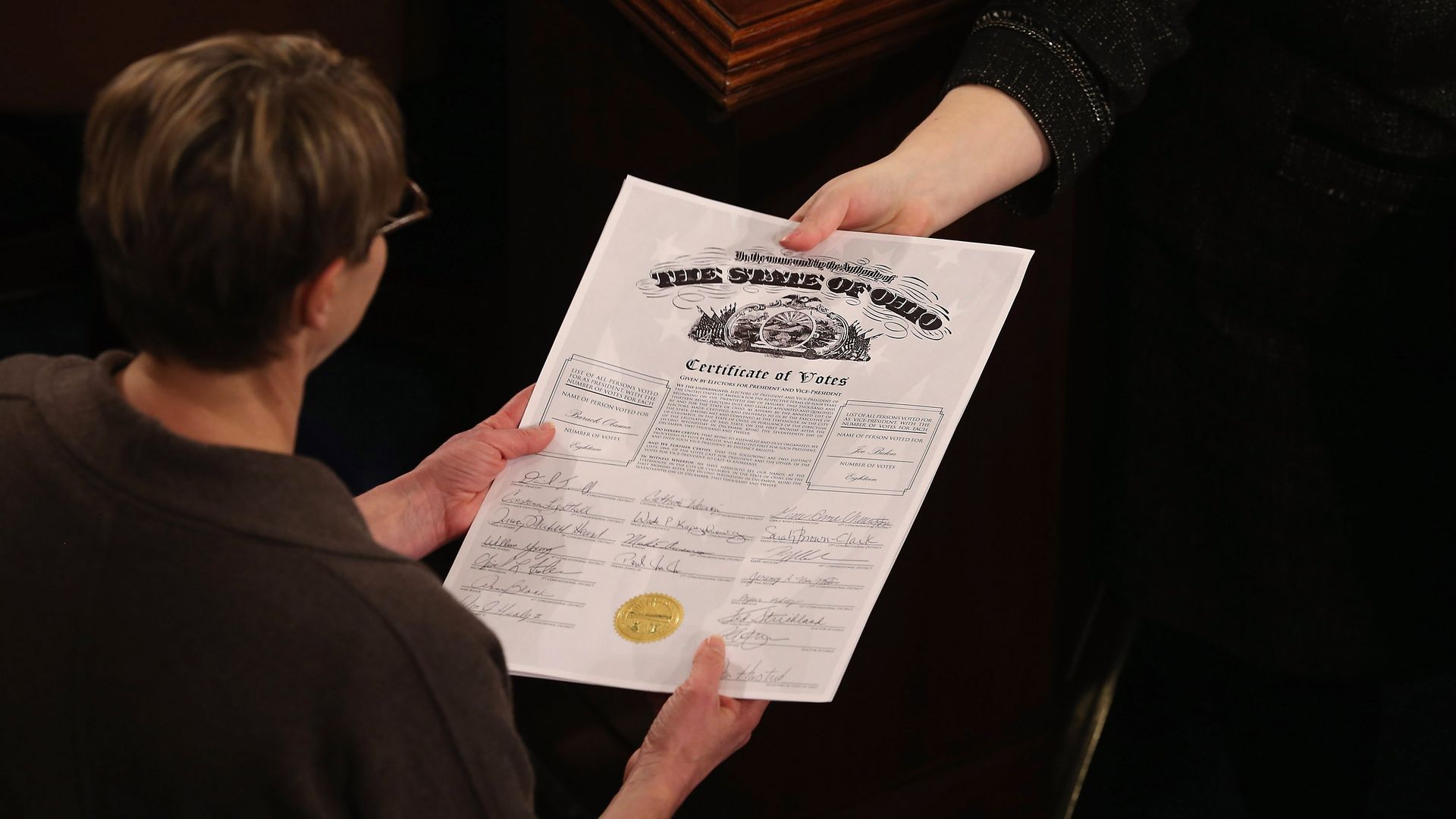Jan 17, 2020 - Politics & Policy
Supreme Court to decide whether Electoral College must follow voters' will
Add Axios as your preferred source to
see more of our stories on Google.

Congressional clerks pass the Electoral College certificate from Ohio at the U.S. Capitol Jan. 4, 2013. The votes were tallied during a joint session of Congress. Photo: Chip Somodevilla/Getty Images
